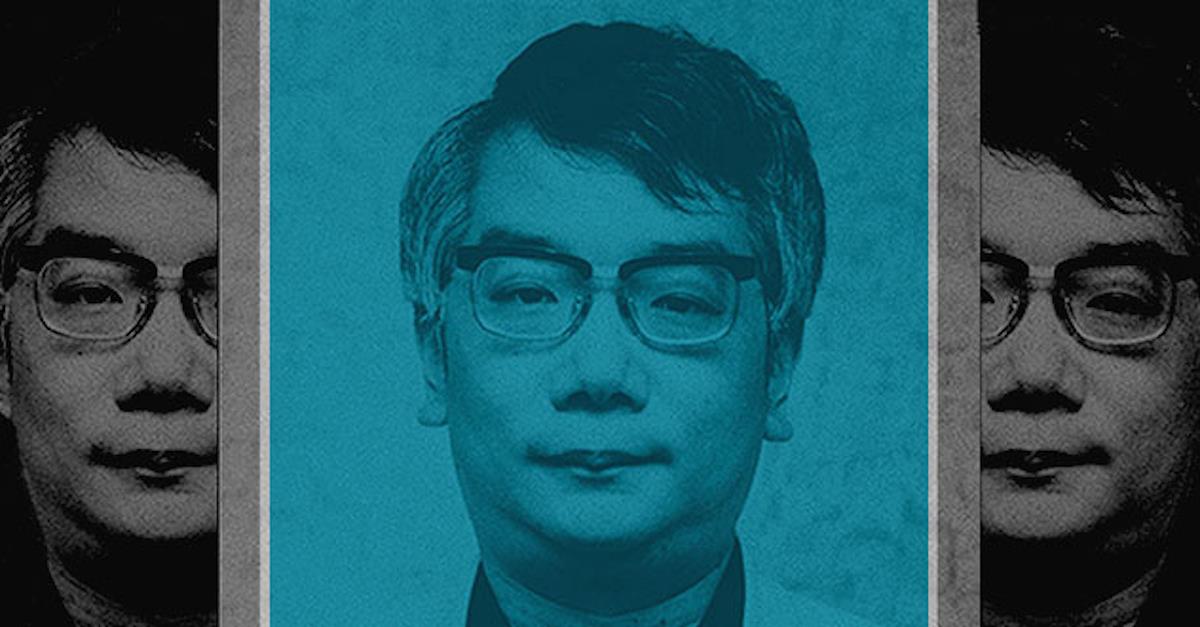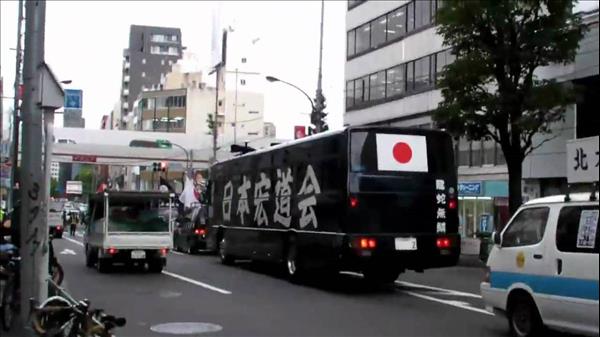(MENAFN- Asia Times) During a recent weekend, an irate caller made a series of threatening phone calls in English and Japanese to the Foreign Correspondents' Club of Japan. Threatening to blow up the FCCJ and to harm two journalist members, the caller accused foreign journalists of being“anti-Japanese.”
One of those threatened was jake adelstein (author of tokyo vice , host of the podcast series the evaporated and sometimes contributor to Asia Times). The other journalist who was targeted requested not to be named in the news media.
“Their articles are rubbish,” the caller said in one call, according to a source – and the writers should leave Japan,“go to Korea.” Another rant:“The staff members at the reception desk should quit because the FCCJ is an anti-Japanese organization.”
The FCCJ contacted the police, who responded swiftly. They traced the caller and quickly arrested the individual responsible – a woman with extreme right-wing and nationalist views.
Jake Adelstein speaking at the Foreign Correspondents' Club of Japan. Photo: FCCJ
This is not the first such incident for the FCCJ.
Longtime FCCJ member Mary Corbett remembers that the Club received calls demanding that it not show“The Sun,” a 2005 Russian film about the September 27, 1945, meeting between victorious General Douglas MacArthur and the defeated Emperor Hirohito, when no other theater would dare screen it for fear of violence from right-wing extremists over its portrayal of Hirohito.
Andrew Horvat, FCCJ president 1988-89 had his own problems with ultranationalists, as he recalled in a recent e-mail:
At least one rightist urged Horvat to pack up and leave the country, he said,“it was quite obvious that they had other than my airline reservations in mind.”
Horvat also recalled the attempted murder at the Club of the Japanese translator of Salman Rushdie's Satanic Verses, following a 1989 fatwah (religious edict) issued by Iran's Ayatollah Khomeini:“I was at this conference and saw Tokyo's finest tackle the knife-wielding would-be killer to the ground, disarm him and remove him from the room in a matter of seconds.”
After that attempt, the police, Horvat recalled,“promised to step up surveillance of the club and I think they did increase their patrols but of course they were conscious that in a democratic society you don't want to see uniformed police standing around at the entrance of a news organization.”
The translator, Professor Hitoshi Igarashi eventually was killed in 1991 at his university office outside Tokyo, apparently by an assassin taking another crack at responding to the fatwah.

Satanic Verses translator Hiroshi Igarashi. Photo: MotaWord
The FCCJ is not the only target of extremists over the years.
The Mainichi Shimbun was attacked by yakuza for publishing reports detailing their activities. In 1994, Hiroji Tashiro, a 44-year old captain in the Tosei-Kai, a Tokyo-based ethnic Korean gang, stormed into the Tokyo headquarters of the Mainichi and fired three .38 bullets into the ceiling. Tashiro was upset with an article published by the Mainichi's weekly magazine that belittled the Tosei-kai, calling the gang“over the hill.”
In 1987, a reporter working from the Asahi Shimbun Kobe office was shot and killed by a right-wing extremist who was angered by a story the reporter had written that described Japanese discrimination against members of the Korean minority in Japan. Another employee in the office was injured in the attack. The assailant's group later sent typed letters claiming responsibility.
There are thousands of right-wing extremists active in Japan, many aligned with underworld gangs. The extremists are notable for the use of black buses and loudspeakers, which they use to espouse nationalistic causes. A favorite target is the Russian Embassy in Japan, where they protest Russian control over the Kuril Islands and other former Japanese territories seized after World War II had ended.
In 1990, a right-wing fanatic shot Nagasaki Mayor Hitoshi Motoshima in the back after the mayor blamed the recently deceased Emperor Hirohito for supporting the war. The mayor survived the assassination attempt.
(Avoiding the use of sound trucks and cultivating an aura of respectability is the largest ultranationalist group, Nihon Kaigi, which has approximately 40,000 members, including many prominent political figures. Nihon Kaigi denies Japan's war guilt and aims to revise Japan's Constitution, Article 9 of which forbids the maintenance of a standing army, among other things.)
In the latest FCCJ episode, over the weekend of December 10-11, six separate calls were made in English and Japanese to the front desk reception.
Police were able to identify the suspect because recordings left on the front desk answering machine showed the phone number from which the calls had been made. Under questioning, the suspect said she did not actually intend to blow up the club.
The FCCJ issued a statement of gratitude to the police and instituted security measures for both staff and members. The organization thanked the police for their prompt and efficient response.
The FCCJ, established in 1945, exists, the statement said,“to provide foreign correspondents and other journalists with broad access to news sources in Japan and overseas, to defend the freedom of the press and the free exchange of information, and to promote friendship, harmony, and mutual welfare in both professional and social relations among foreign and Japanese journalists.”
The statement added:“We will not be swayed by terrorism or threats.”
Says Adelstein of the recent threat,
An interesting footnote is that the irate nationalist, in one of her calls to the club, got FCCJ history wrong.“I am personally against FCCJ activities,” she said because the club“was established by MacArthur in General Headquarters.”
No. The official club history (and thanks to Amazon's“Look Inside” feature you can read the juicy details here for free ) explains that the post-surrender unwillingness/inability of MacArthur's GHQ to provide access to billets for foreign correspondents – plus the fact that SCAP (Supreme Commander Allied Powers) didn't hide the feeling that newsmen were unwelcome – made it necessary for reporters to come up with an alternative on their own.
The club was the result. In its initial iteration, the facility included not only food and beverage operations but also bedrooms for the scribblers and photographers.
robert whiting is the author of, among other books, tokyo junkie and tokyo underworld . This article was first published by robert whiting's japan (Substack), which offers his regular commentary on Japanese sports, politics and business. It is republished with permission. Follow him on Twitter: @robertwhiting




















Comments
No comment